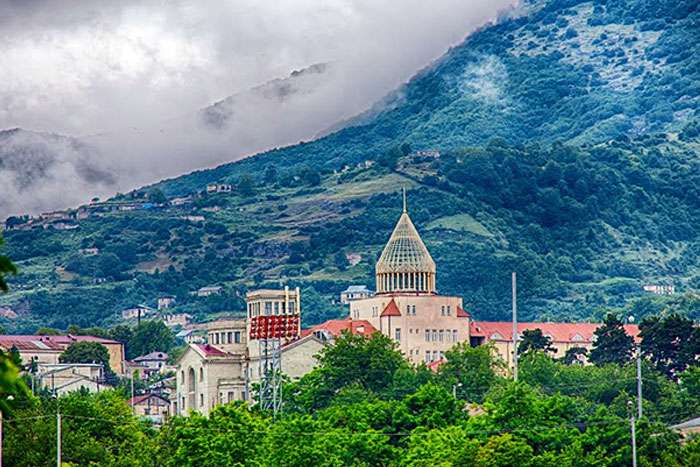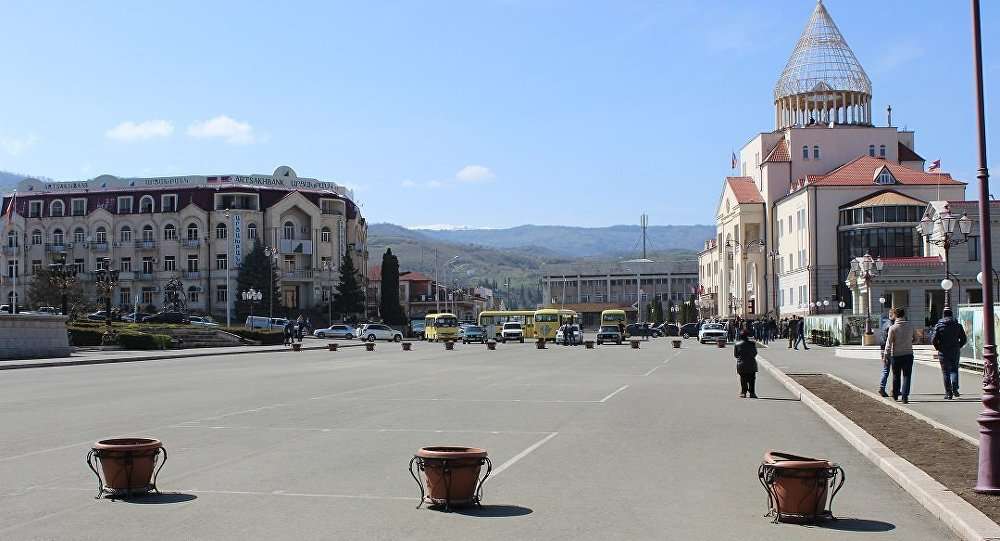A group of civil society organizations in Armenia sent a letter to Elis Nderitu, Special Adviser of the UN Secretary-General on Genocide Prevention, warning about the threat of ethnic cleansing by Azerbaijan against the population of Nagorno Karabakh.
In the letter prepared and submitted by Open Society Foundations-Armenia, Rights Without Borders NGO, Transparency International Anti-Corruption Center, Helsinki Civil Assembly Vanadzor Office, Law Development and Defense Fund, and For Equal Rights NGO, it is stated:
"Two years have passed since the war against Nagorno-Karabakh, but the main security issues have not been resolved yet. Many fundamental rights continue to be violated, and there is a significant and increasing risk of new conflicts and atrocities. The possible ethnic cleansing against the native Armenian population of Nagorno-Karabakh is especially alarming. The Azerbaijani government's extreme hatred and belligerent rhetoric, the destruction of Armenian monuments and the appropriation of cultural heritage, the exceptional brutality of the Azerbaijani armed forces, continuous threats of violence, and intimidation are characteristic of genocidal atrocities. The scenario of ethnic cleansing may become a reality if the crimes of the Azerbaijani side remain unaddressed and effective pressure is not put on official Baku to refrain from violence."
The organizations noted that this situation should receive due attention and evaluation by international organizations, including the United Nations. "The large-scale attack against the sovereign territory of Armenia was an act of open aggression in violation of the UN Charter. Azerbaijan continues to occupy territories in eastern and southern Armenia, creating significant livelihood challenges for the local population. And yet, many statements, including one by Secretary-General Guterres, have a neutral tone. This only encourages the aggressor," the authors of the letter emphasized.
Representatives of the civil society considered the deployment of the European Union civilian observation mission working in the territory of Armenia as a welcome development. Still, they noted that its mission period is only two months and does not have enough staff. "Furthermore, Azerbaijan is unlikely to agree to extend the mission without significant international pressure, but such an international mission must remain a mechanism to prevent further use of force. The UN can have a say here and discuss efforts to join this mission. Given the enormous power imbalance between the two, a stronger international presence and engagement is the only hope for peace. Moreover, the risk of ethnic cleansing and gross violation of human rights against the Armenian population of Nagorno-Karabakh should receive more attention. It should be clear to Baku that the world is watching and expects that it will abandon the continuous use of force and intimidation and start direct negotiations with Nagorno Karabakh, which will be through international mediation. Baku should also be pressured to allow humanitarian access to the region (currently only the ICRC has access), especially for the UN," the letter said.
Concluding the letter, the organizations noted that although the NK issue may seem like a small-scale conflict, it sets a dangerous precedent for making the use of force a common phenomenon and weakens international frameworks and institutions designed to resolve and prevent conflicts, including the United Nations.




















